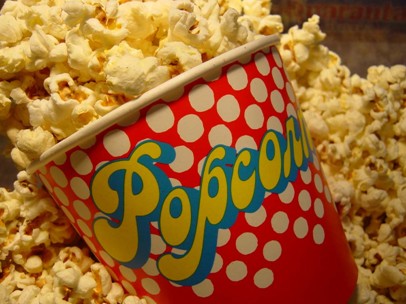发布时间: 2017年02月08日

『研究人员发现,生动逼真的广告能使人产生错误的记忆。』
Advertising Can Warp Your Memory
广告能扭曲你的记忆
May 23, 2011 | From US News & World Report

Advertising is everywhere people look. It"s along the highway, in storefronts, and online. It can be funny or poignant; it can be annoying. New research shows it can also encourage people to recall things that never happened to them.
Nicole Votolato Montgomery, an assistant professor of marketing at the College of William & Mary in Williamsburg, Va., and Priyali Rajagopal, an assistant professor of marketing at Southern Methodist University, in Dallas, Texas, developed an experiment to test the effects of advertisements on memory.
They asked people to read a very descriptive print advertisement detailing the taste of a fictional popcorn product made by a familiar brand name, then asked a portion of the subjects to taste popcorn labeled with the fictional name. A week later, those who merely read the detailed advertisement were just as likely to report eating this popcorn as people who actually ate it. People who read an advertisement with less vivid imagery were far less likely to report eating the popcorn.
"What we found is that if consumers falsely believe they have experienced this advertised brand, their evaluations of that product are similar to evaluations of products that they actually experienced. That is a fairly unique finding," said Montgomery. "Humans are a lot more inaccurate than we think we are," said Michael Nash, a professor of psychology at the University of Tennessee - Knoxville. He said that the phenomenon of false memories is well-known in psychology, and that he found it interesting that the research extends the concept to marketing.
Anyone who watches the Super Bowl or "Mad Men" probably suspects that advertisers put plenty of effort into the style and substance of their pitches, in addition to researching the effectiveness of their efforts. "I think that advertisers have known that there are benefits to using these very vivid ads," said Montgomery, "but I don't know to what extent advertisers are aware of the fact that these ads can impact memory." Nash said it might be a stretch to connect a false memory of a popcorn brand to the decision to purchase it. "It's another thing to tie an effect to an actual behavior, that is, buying the popcorn," he said.
The researchers also found that when they replaced the well-known brand name with something they invented but kept the same product name and vivid advertisement there was a much lesser effect."Our intent was really just to educate consumers that they need to be vigilant when they're processing high imagery ads, because these vivid ads can create these false memories of product experience," said Montgomery.
热门推荐:
上一篇: 考研阅读精选:妈妈严厉的爱
下一篇: 考研各科目复习要点
历年考研真题下载